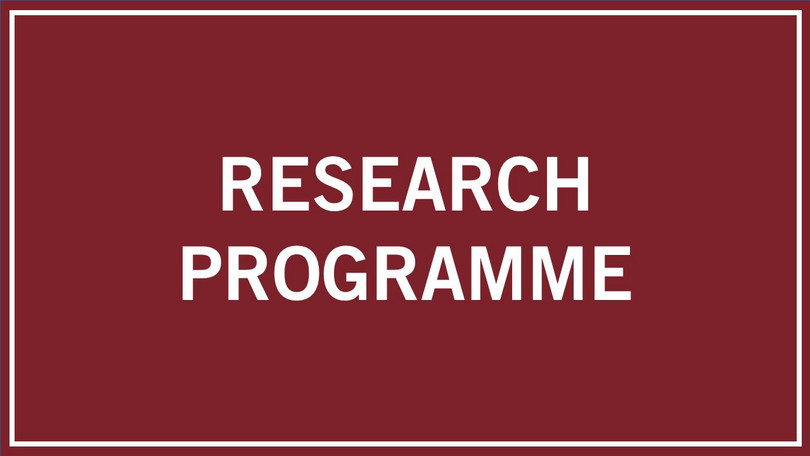Joachim Herz Doctoral School
The Joachim Herz Doctoral School of Law offers a structured Ph.D. programme in the field of Law and Transformation (link).
Thanks to the funding from the Joachim Herz Foundation (link), highly qualified graduates from legal science (and neighbouring disciplines) have the opportunity to pursue ambitious Ph.D. projects on topics closely related to transformation processes. Details on the research projects of the fellows can be found to the corresponding subpage (link).
Furthermore, the doctoral school aims to effectively present legal knowledge and research results on (legal) transformation processes and to enter into discourse with students, researchers, and representatives of civil society. The offered event formats contribute to the realisation of this objective.
Since the industrial modern age at the latest, technological and social developments have brought societies of the 20th and even more so of the 21st century into a state of permanent transformation and put them under permanent pressure to change. Diverse (social) conflicts, diverging objectives, conflicting interests, and clashing values caused by these transformation processes lead to major challenges for peaceful, cooperative social interaction (as is currently evident, for example, in the Ukraine conflict, in the decarbonisation process, or in the digital transformation). Against this backdrop, the future viability of societies in the 21st century lies in particular in the ability to cope well with disruptions and the resulting transformations.
Law plays a central role in this respect. It is a prerequisite for the legitimacy and capacity to act of democracies; as well as a prerequisite for freedom and prosperity, especially in the context of far-reaching transformations. However, this situation also results into questions about the possibilities, limits, and legitimacy of political-social control, stabilisation, and enabling, which become apparent, e.g., in the tension between juridification processes and democratic decision-making procedures. It will be the mission of legal science to deal with these ascpects in more detail in the upcoming years.
Against this background, Prof. Dr.-Ing. Dr. Sabine Kunst, Chairwoman of the Board of the Joachim Herz Foundation, outlines the legal and social challenges of our time as follows:
Our present time is characterised by transformation processes such as increasingly AI-based digitalisation or the search for a constructive way of dealing with the consequences of climate change. This confronts us with political and social challenges that also need to be dealt with in legal terms. With the Doctoral School, the Joachim Herz Foundation promotes the training of academic skills at the interfaces between law, economics, and political science, which are urgently needed to research and deal with these issues
For the Joachim Herz Foundation, education, science, and research are the cornerstones of a free society. Therefore, the foundation supports projects in these areas and thus contributes to an efficient and tolerant community.
The founder and name giver, the Hamburg entrepreneur Joachim Herz, conceived the foundation and its programme together with his second wife Petra. After the foundation was established in 2008, his fundamental conviction became its maxim for action:
A person must be active and not just reactive. He must also be enabled to make the most of his own opportunities.
The Joachim Herz Foundation promotes education, science and research in the fields of economics, natural sciences, and personal development. In addition, innovative, application-oriented research at the interfaces between medicine, natural sciences and engineering is promoted.
With various scholarship programmes, the Joachim Herz Foundation supports individuals and promotes their talents and commitment - for example, young scientists in research or young adults on their educational path.
For further information on the Joachim Herz Foundation, please visit the Foundation's website (link).
Leuphana University Lüneburg emerged from the special legal mandate of the Lower Saxony state parliament to rethink the concept of "university" and create a model university for the Bologna Process.
Leuphana University Lüneburg is a foundation under public law and considers itself as a place for a free thirst for knowledge, ingenuity, personal development, and social commitment. It has developed a multi-award-winning study model with three schools; a concept which is still unique in Germany. Five faculties are responsible for Leuphana's main research areas in the fields of education, culture, sustainability, management and entrepreneurship, and public affairs.
School of Public Affairs
Since the summer semester of 2022, the departments of political science, law, and economics have been working together at the "Leuphana School of Public Affairs" with currently 26 professorships, creating a profile on public affairs that is new in Germany.
In its research, the school addresses the major transformation processes of our time and, to this end, it is constantly further developing its existing research focus on the future of democracy, the evidence-based nature of political decisions, and law in the context of (social) transformations. Before the background of these overarching subjects and through interdisciplinary cooperation, the school deals with the following research topics:
- the legitimacy and ability to act of democracies, the integrative power of which is under threat, especially against the background of recent upheavals in politics and society,
- the role of the state in the relationship between private-law and public-law regulation,
- the justification of state intervention in market economy processes and their ex post evaluation.
For further information, please visit the page of the School of Public Affairs (Link).



